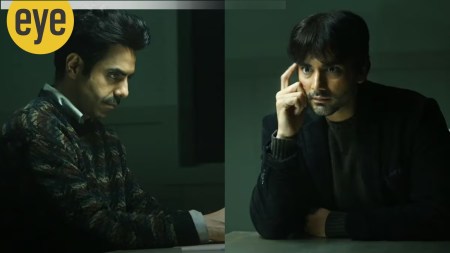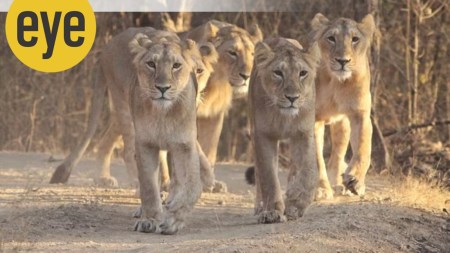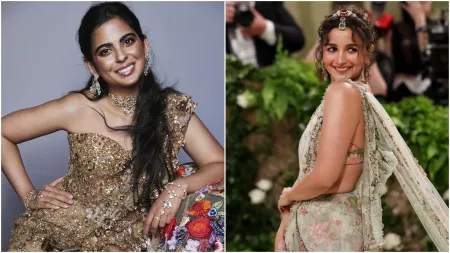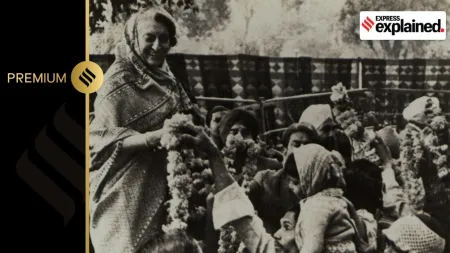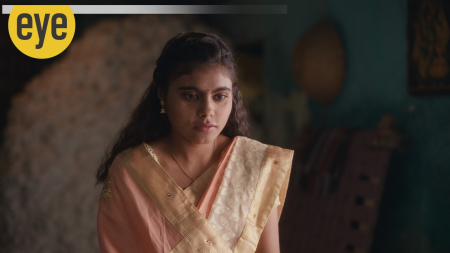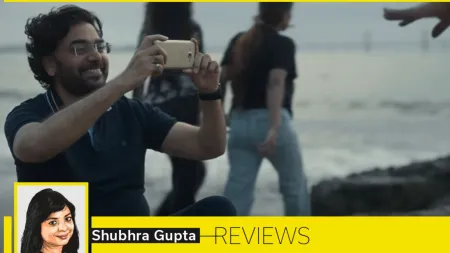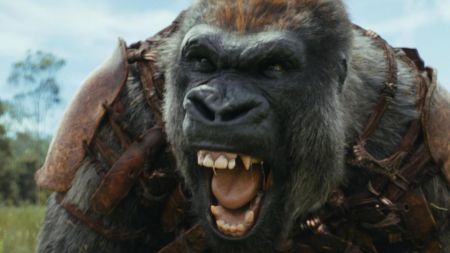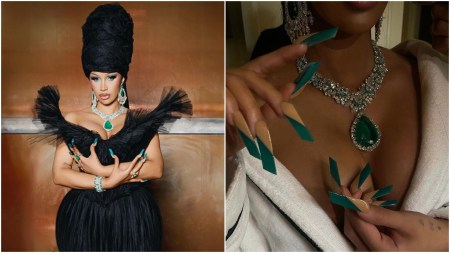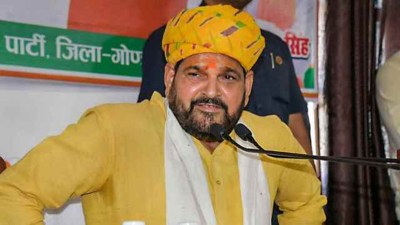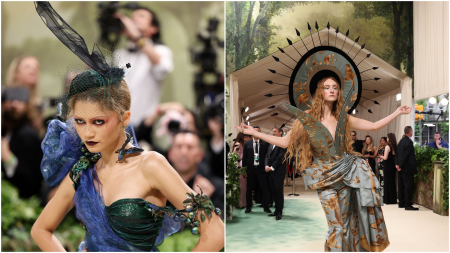- India
- International
Kaala, showing at India’s Oscar-qualifying festival, is a raw take on Delhi’s racism
After 73 years of Independence, are Indians free of racial prejudices? Tarun Jain’s short film Kaala, at BISFF, shows how black lives don’t matter in the national capital
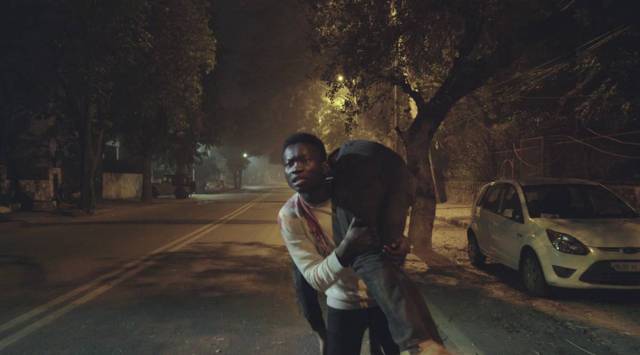 Jude Tony in a still from the film Kaala (Black) (Source: filmmaker/Tarun Jain)
Jude Tony in a still from the film Kaala (Black) (Source: filmmaker/Tarun Jain)Before George Floyd, there was Breonna Taylor. The teen Christopher Kapessa. And later, a repeat of the Floyd incident in Islington (UK). No vaccine has been found to fight the virus of racism. The proclivity to racial slurs continues unabashedly despite the #BlackLivesMatter movement. The story is no different in India: an African woman molested in Bengaluru quarantine centre, two African students thrashed at the Roorkee Institute of Technology, mob beats a Nigerian at a Greater Noida mall, or a Congolese beaten to death in Delhi’s Kishangarh.
Unlike them, Samuel Abiola Robinson, the affable Sudu from the heartwarming 2018 Malayalam film Sudani from Nigeria, just happened to land in Kerala, and receive – in real and on reel –hospitality and human decency. Had he come up north, he might have witnessed what protagonist Bryan (Jude Boman Tony) in the short film Kaala (Black) does. Tarun Jain’s 15-minute film is a peeled out, raw look at how Indians see Africans. After RapidLion: The South African International Film Festival and the US’s Cinequest Film & VR Festival, it’s showing in Indian competition at India’s only Academy Awards-qualifying festival for Live Action Shorts, Bengaluru International Short Film Festival (BISFF), till August 16. The film won its first Best Director award at Global Impact Film Festival in the US.
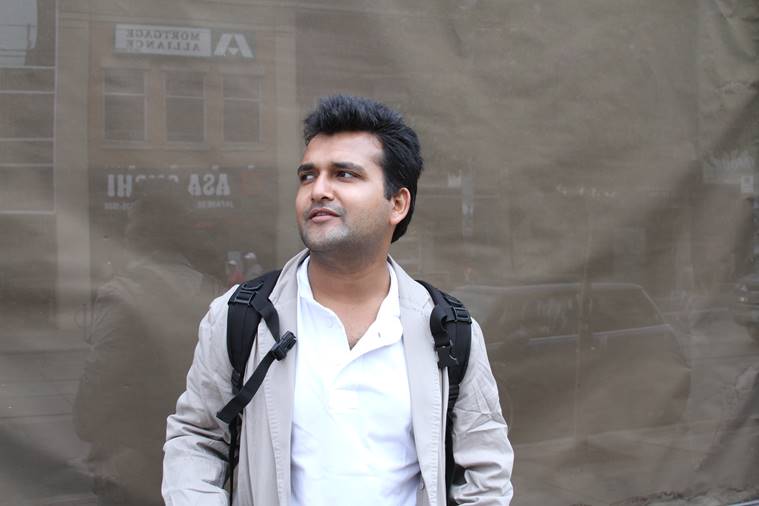 Tarun Jain (Courtesy: Tarun Jain)
Tarun Jain (Courtesy: Tarun Jain)
In spite of Bollywood’s love affair with Nigeria, since the ’50s, its casual racism surfaces in songs like Hum kaale hain toh kya hua dilwale hain (Brahmachari, 1968). After 73 years of Independence, are Indians free of prejudices and ingrained racism? Even Nelson Mandela, in his anti-Apartheid struggle, had urged people to forgive the racist remarks of the younger Gandhi – whose statue in the US was vandalised in the wake of #BlackLivesMatter protests – because he had little contact with, and understanding of, Africans, and had carried with him the White colonisers’ class and colour prejudices from India.
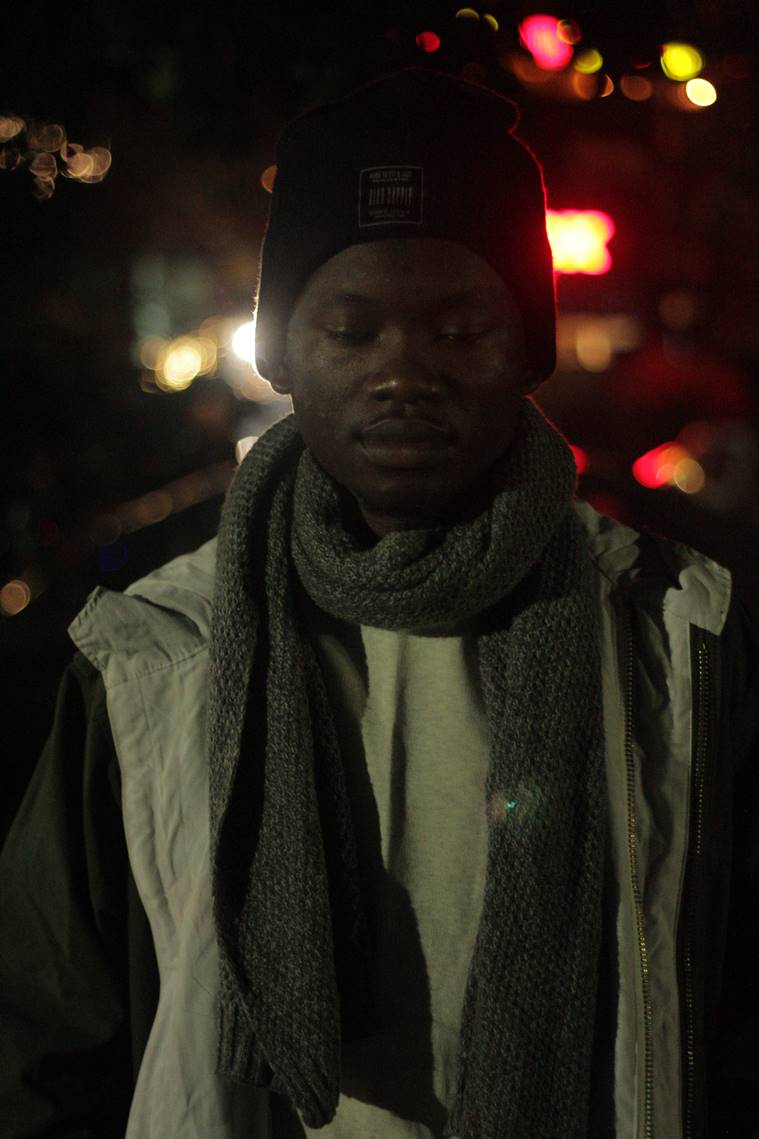 Jude Tony in Kaala (Courtesy: Tarun Jain)
Jude Tony in Kaala (Courtesy: Tarun Jain)
Irony writes itself as the former South African president’s name appears on the road sign of Delhi’s crime-prone Nelson Mandela Marg in Kaala (Black) – made in 2016-17, with “fictional characters, but real incidents”. Onlookers’ biases are unmasked as Bryan walks by. He’s called names – habshi, “bloody Negro”, “shithead Blackie”, suspected to be peddling drugs, is roughed up in Hauz Khas Village by a group of men, who channel their aggression through one victim (their dark, Indian driver) on to the other (Bryan). As Bryan looks into the mirror, what does he see? What will the audience see – a beaten-up boy or a black man?
Racism is “far more in north India, where the north-south divide is starker,” says Jain, 35, “I’m from Delhi and I react from this perspective, I can’t talk about the bigger picture, but the smaller is already scary.” The harsh lights, dead silence, the chase, build the tension. Jain recreates apocalyptic landscapes, like in his short fiction Amma Meri (2019) on Haryana’s agrarian crisis, an old matriarch, a daughter in an unsafe male world, and a man (Anuraag Arora, who played Aamir Khan’s brother in Dangal, and Kaala’s creative producer) at the centre of it. Jain’s road thriller Aakhir (At Last, 2013) travelled to 45 festivals.

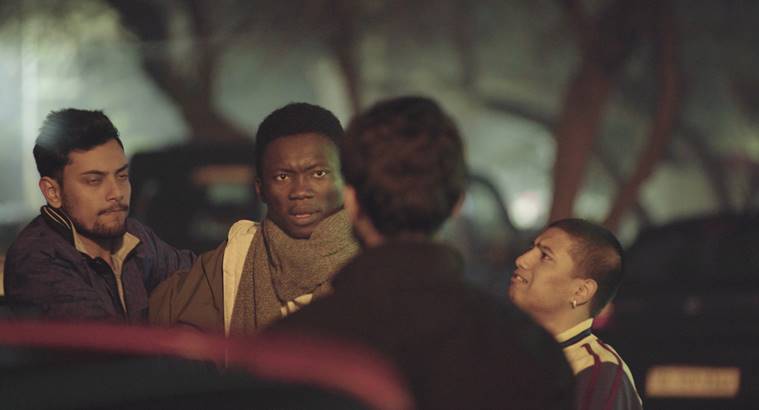 Jude Tony as the protagonist in Kaala (Source: Tarun Jain)
Jude Tony as the protagonist in Kaala (Source: Tarun Jain)
For African students, India is easy on the pocket. Jain found his “warm, caring, soft-spoken, patient” lead Tony at Noida International University. “Biases are passed down through generations,” says Jain, adding, “Ten years back, I didn’t stop my friends from bullying. Nobody – neither teachers, nor parents – supervised, corrected or stopped us. Only after travelling, meeting and staying with people from other cultures did I realise that I should have spoken up back then.”
“Communication was a challenge. I had to learn Hindi,” says Tony, 25, “A lot of Nigerians watch Bollywood; I love Bombay to Goa (1972). We come attracted by the cultural diversity, colour, dances, but once here, we realise it’s not like in the movies.” Tony, who hails from Kadena, northern Nigeria, is currently participating in a baking workshop in Koramangala. Back home, he did a diploma programme at Indian Institute of Hardware Technology, in Port Harcourt, had three Indians in his batch, and his mother works at an Indian enterprise. “India and Africa have had bilateral relations for long. But the focus should also be on culture, not just business,” he says.
The Greater Noida mob attack incident shook him. “There needs to be more humanity. Politics plays a role, but ultimately the agency lies with you, your inner conscience.” Racial slurs are bad, says the shy and outrageously polite Tony, who remembers telling a college mate to not refer to North-Easterners as chinki. “India made me outspoken. Delhi is more hostile. People try to step on your toes, make fun of you daily. Mumbai was different. People on the streets walked up to me to ask if I was from the West Indies,” he chuckles, but soon turns somber when Floyd is mentioned. “Something is really wrong with America. That is one place I don’t want to go to,” he says.
“Kaala openly talks about racism. It’s great that young filmmakers are making braver films like these. Cinema is an excellent visual form to ask questions, filmmakers must do that, we encourage discussions and films that ask questions,” says Anand Varadaraj, 34, festival director of BISFF, which is in its 10th year. Every year, it receives 1,000-1,200 daily viewers over four days and 3,000-plus submissions, of which 75 are shown in competition, in five categories: International, Indian, Karnataka, animation, Let’s Include (physical disability and gender diversity), and an equal number in non-competition. This year, the three-member jury of the Indian category, in which Kaala competes, includes directors Vikramaditya Motwane and Karthik Subbaraj. If the American biographical drama around racism Skin won the Oscars for Best Live Action Short Film, in 2018, perhaps, Kaala stands a chance. “It doesn’t look like a Hollywood production,” laughs Jain, “but the intent was genuine.”
Buzzing Now
May 10: Latest News
- 01
- 02
- 03
- 04
- 05


